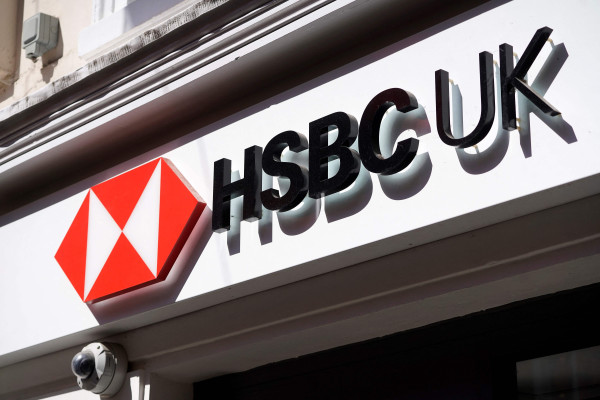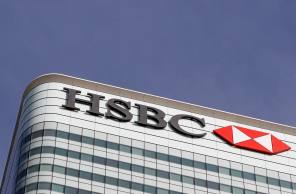

The dispute centres around so-called pensions “clawback”, a practice in which an employer cuts its employees’ pension on the basis that they also receive a state pension.
On April 29, shareholders will vote on a resolution from the Midland Clawback Campaign, which has lobbied the bank over its clawback practice, which HSBC refers to as “state deduction”.
Clawback was introduced in the 1940s, allowing workers to pay lower contributions into their plans and employers to remove some, or all, of the state pension amount from their pension payments.
‘Disproportionately penalising the lowest paid, mainly women’
Unite said that 51,000 former Midland Bank employees, which is now part of HSBC, are affected. Theirs is the only HSBC scheme affected by clawback, the union said.
“Former and current employees are demonstrating to expose and stop an unfair practice known as clawback after it emerged that thousands of them are having as much as £2,500 a year snatched from their hard-earned company pension payouts,” the union announced on April 27.
“The staff argue that clawback is grossly unfair, disproportionately penalising the lowest paid, mainly women forced to take time off to raise children.”
HSBC has recommended that shareholders vote the resolution down. The bank disputes the use of the term “clawback” as an accurate description of its state pension reduction.
“HSBC agreed to provide pension benefits to members and fund the scheme on the basis that the state deduction will be applied,” its AGM circular stated.
“No aspect of members’ benefits, or amounts paid to members, are or will be clawed back, nor are they ‘withheld’.”
The bank said that the integration features in other schemes and was clearly communicated to members.
It also argued that removing the practice would be unfair to other scheme members.
“Removal of the state deduction would constitute a retrospective change which would benefit a particular group of members and be unfair to other scheme members,” the bank said.
“It would increase the risk of grievances being raised from other pension scheme members, both in the UK and globally, and would set a precedent for further challenges to valid terms and conditions that could lead to significant unplanned and unintended costs.”
The government will not intervene
According to written evidence submitted by the Midland Clawback Campaign to parliament in 2020, of those who stood to lose 15 to 20 per cent in their pension, they were nearly six times more likely to be female than male.
For those in the range of 20 to 30 per cent, this multiple rose to 10 times more likely. Of the five pensioners who would lose more than 30 per cent, all were women.
In 2017, pensions minister Guy Opperman acknowledged the complaints his department had received over the practice with respect to the HSBC scheme.
He observed that clawback — also known as pension integration — would be set out in the scheme’s rules when the member joined.
“Such arrangements are not a requirement of Department for Work and Pensions legislation,” Opperman said, adding that “it would not be right to compel schemes to withdraw this integration arrangement”.
“That would amount to a retrospective change imposing significant additional unplanned costs. Pension scheme rules on the calculation of benefits are many and varied, and must remain a matter for employers and scheme trustees to decide.”
In 2019, 96 per cent of HSBC shareholders voted against abolishing the practice at the bank’s AGM.
HSBC declined to comment.
Alex Janiaud is deputy editor of Pensions Expert, FTAdviser's sister publication



